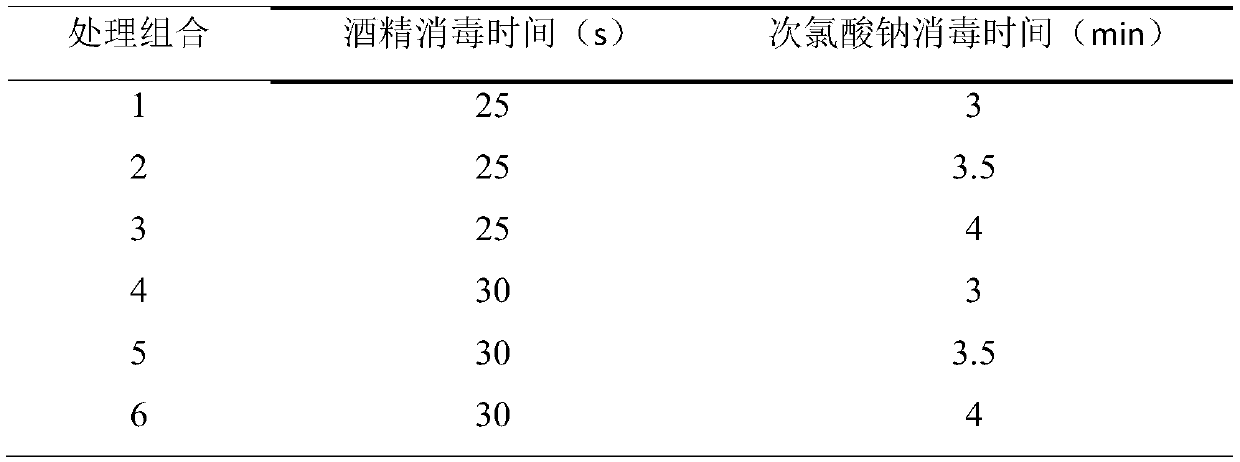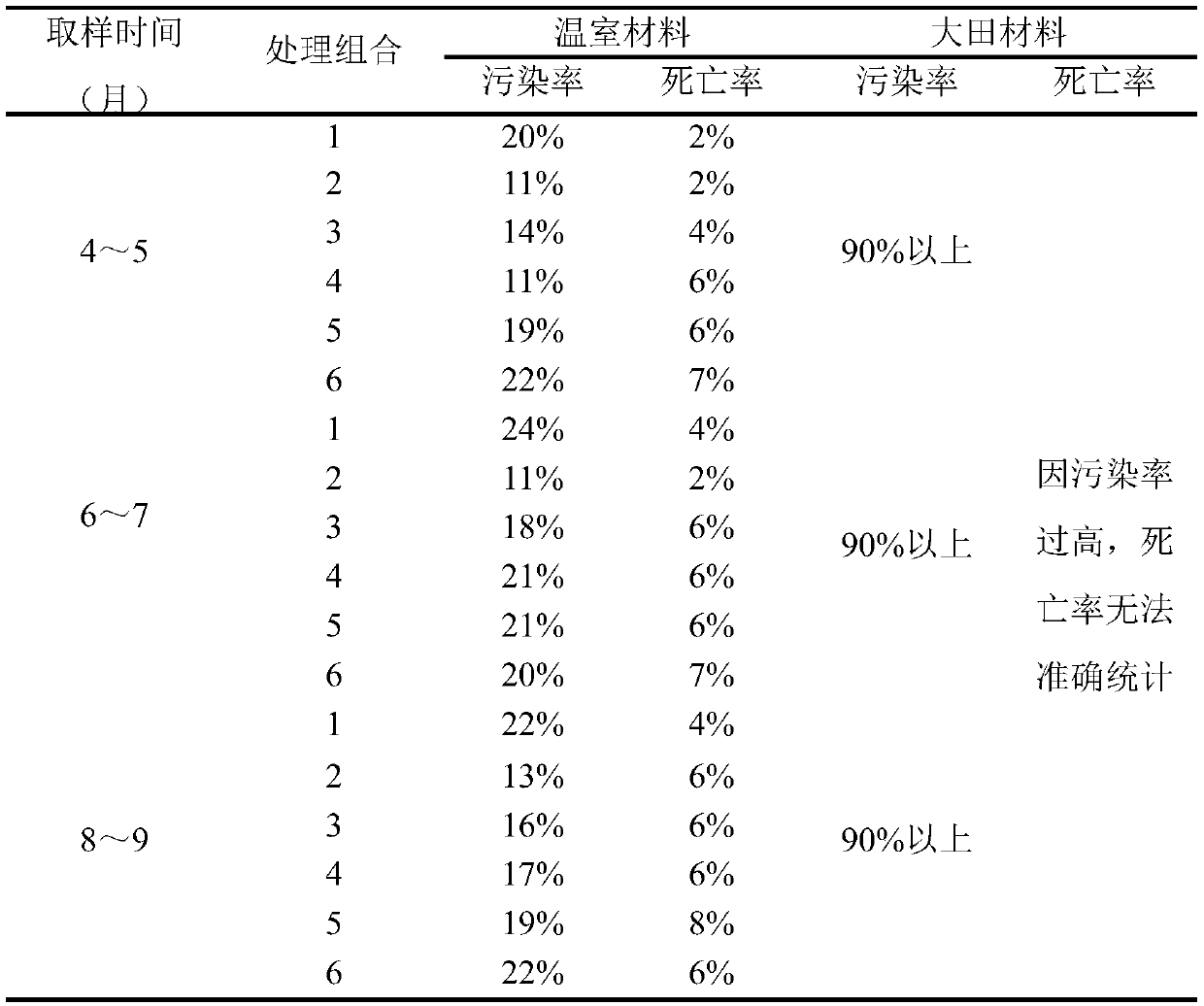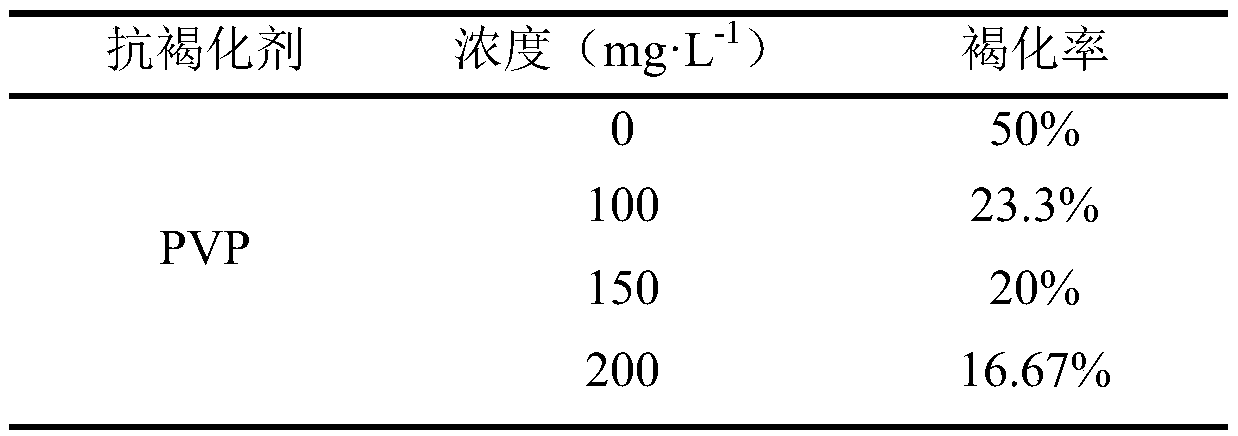Callus induction and subculture medium for cyclocarya paliurus, and culture method thereof
A technology of callus induction and subculture, which is applied in the field of plant tissue culture, can solve the problems of scattered distribution of natural resources and obvious differences in component content, and achieve the effects of easy handling and management, good response effect, and increased proliferation rate
- Summary
- Abstract
- Description
- Claims
- Application Information
AI Technical Summary
Problems solved by technology
Method used
Image
Examples
Embodiment 1
[0045] Embodiment 1, the selection of explant and the screening of disinfection time
[0046] Selection of explants: In 2017, we collected healthy and disease-free vegetative branches from the Qingqian Liu Nursery of the Baima Base of Nanjing Forestry University and the Greenhouse on the 10th Floor of the Biotechnology Building of Nanjing Forestry University, and cut long branches from the top 1 and 2 nodes. About 3-4cm semi-lignified stem section with buds, retaining 1 axillary bud.
[0047] Pruning and cleaning of explants: trim the leaves on the stems, keep the petioles and 1 / 5 of the leaves, and rinse with tap water for 1 to 2 hours.
[0048] In order to screen out the best treatment combination of disinfection time for the stems of Cyclocarya paliurus, two disinfectants, alcohol and sodium hypochlorite, were selected to study the disinfection treatment of Cyclocarya paliurus, and the disinfection time of 75% alcohol was selected at two levels: 25s and 30s. 10% sodium hyp...
Embodiment 2
[0057] Embodiment 2, anti-browning agent concentration screening
[0058] In the experiment, it was found that the stem section was browned after inoculation. In order to study the effect of the anti-browning agent PVP (polyvinylpyrrolidone) on the browning degree of the callus of Cyclocarya paliurus, the concentration of PVP was set at 4 levels in this experiment: 0 , 100mg·L -1 , 150mg·L -1 , 200mg·L -1 . The experiment was carried out with a single factor randomized block experiment. The sterilized stems of Cyclocarya paliurus were placed on sterilized filter paper (11×11cm) to dry, and the ends of the stems and the axils of the leaves were removed with sterilized scissors. Petiole, put the cut stem segment flat on the sterilized callus induction medium (the medium formula is WPM+1.5mg L -1 6-BA+0.3mg·L -1 IBA), add different concentrations of PVP respectively, the depth of the stem section is 1 / 4 of the length of the stem section, put 2 to 3 stem sections in each bot...
Embodiment 3
[0063] Embodiment 3, sterile anti-browning system callus induction medium formulation screening
[0064] In order to induce callus from the stems of Cyclocarya paliurus, 200mg·L -1 PVP, 6-BA and NAA, add 200mg·L in WPM basic medium -1 PVP, 6-BA and IBA two hormones. The effect of growth regulator concentration on callus induction was mainly studied, and the combination of hormone concentration and treatment is shown in Table 4 below. The explants were selected from the stem section of the sterile culture system constructed in the previous stage, trimmed and placed flat in the callus induction medium. The depth of the flat part accounted for 1 / 4 of the length of the stem section. ~3 stem segments, inoculate 20 bottles at a time, and repeat 3 times. During this process, control the environmental conditions in the cultivation room, and clean up the contaminated and browned materials and culture medium in time. After 20 days of culture, the callus induction was counted.
[0...
PUM
 Login to View More
Login to View More Abstract
Description
Claims
Application Information
 Login to View More
Login to View More - R&D
- Intellectual Property
- Life Sciences
- Materials
- Tech Scout
- Unparalleled Data Quality
- Higher Quality Content
- 60% Fewer Hallucinations
Browse by: Latest US Patents, China's latest patents, Technical Efficacy Thesaurus, Application Domain, Technology Topic, Popular Technical Reports.
© 2025 PatSnap. All rights reserved.Legal|Privacy policy|Modern Slavery Act Transparency Statement|Sitemap|About US| Contact US: help@patsnap.com



